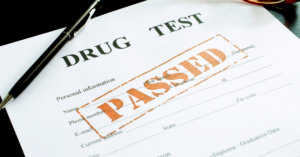

Trauma disorders stemming from exposure to distressing or life-threatening events encompass a broad spectrum of psychological conditions that can profoundly impact individuals’ lives. These disorders present unique challenges in diagnosis and treatment. However, by gaining insight into the various types of trauma disorders and employing a comprehensive approach to treatment, individuals affected by trauma can find avenues for healing and recovery. As an esteemed Florida Mental Health Center, Diamond Recovery offers trauma disorder treatment to those who need it most. Read on to learn more about what this entails.
Trauma disorders refer to a variety of psychological conditions caused by exposure to distressing or life-threatening experiences. These events surpass a person’s capacity for adjustment, resulting in a variety of symptoms that may seriously compromise everyday tasks and general well-being. Mental disorders from trauma can leave a resounding impact on the lives of those affected, as well as their loved ones.
Types of trauma disorders include:
Understanding the subtle characteristics of each of these disorders caused by trauma is critical for proper diagnosis and therapy. A multifaceted strategy that addresses both the psychological and physiological elements of trauma is essential for fostering healing and recovery. People with trauma disorders can start to reestablish a sense of safety and control by being in a supportive and affirming setting, which eventually promotes endurance and overall well-being.
Treating trauma-related disorders necessitates a holistic strategy that tackles both the psychological and physiological consequences of trauma. Therapy, especially research-proven techniques like eye movement desensitization and reprocessing (EMDR) and cognitive-behavioral therapy (CBT), can assist people in processing traumatic experiences and creating coping mechanisms to control symptoms. These treatments typically involve exposing patients to memories or stimuli associated with their traumatic experiences progressively in a secure setting, enabling desensitization and reintegration of the traumatic event.
Medication may be recommended in addition to treatment to alleviate symptoms of trauma disorders, such as depression, anxiety, and insomnia. Specifically, antidepressants may aid in mood regulation and lessen symptoms associated with hyperarousal. However, medication typically works in conjunction with treatment because it is rarely adequate on its own to address problems connected to trauma. In addition, by encouraging relaxation, self-awareness, and emotional regulation, holistic treatments that combine practices like mindfulness, yoga, and meditation can support conventional therapy procedures. Clinicians can help patients heal and recover from trauma-related diseases by combining several therapy modalities that are customized to each patient’s needs.
Our Boca Raton mental health facilities are committed to providing comprehensive mental health programs tailored to address the diverse needs of individuals grappling with trauma-related disorders. Our multidisciplinary team, composed of therapists, psychiatrists, and holistic practitioners, collaborates to deliver personalized treatment plans that integrate evidence-based therapies, medication management, and holistic modalities.
With a range of levels of care, from intensive outpatient programs to residential treatment, we offer a continuum of support designed to meet individuals wherever they are on their healing journey.

Creating foundations of solution for those suffering from substance use disorders.
Licensed by the State Department of Health Care Services
License: 191117AP
Expires: 01/31/2026
© Diamond Recovery 2024
About Us
Quick Links